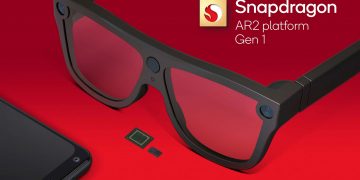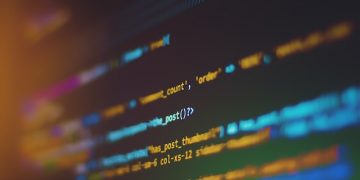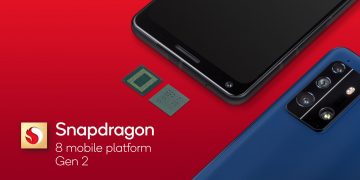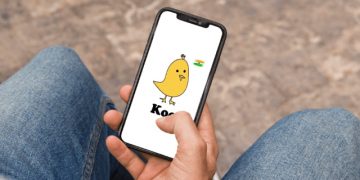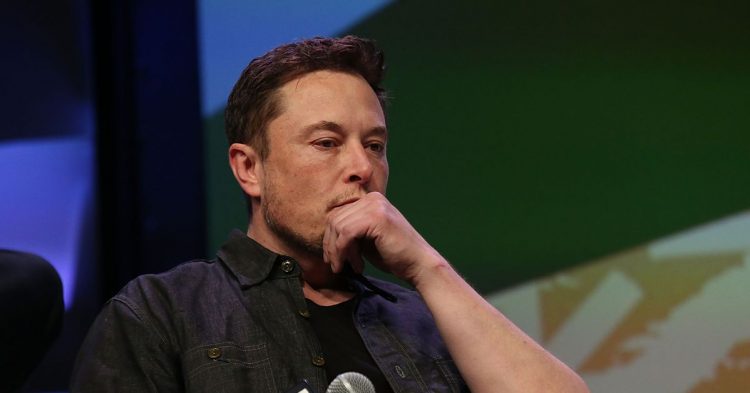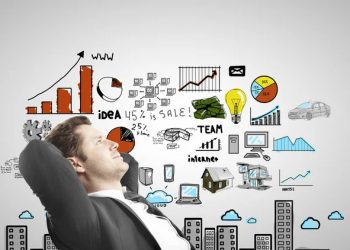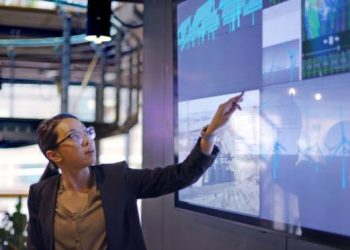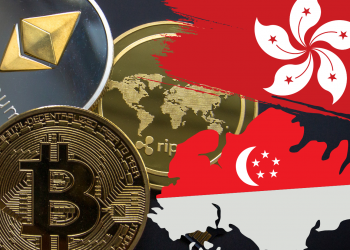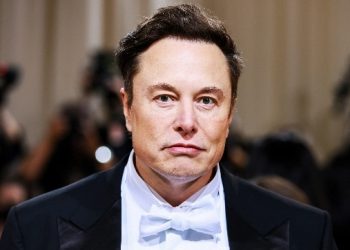It was easy to predict that Elon Musk’s first few weeks as Twitter’s owner would be a mess. But even if you thought the world’s richest man and Twitter’s most high-profile user would stumble once he owned his favorite messaging service, the scale of the chaos seems staggering.
The chaos is also, quite frankly, confusing: No matter what you want to say about Musk, he’s been successful multiple times in his career. But here it seems like he has no idea what he was doing, starting with his on-off-on approach to buying the thing for $44 billion in the first place. So what’s different about Twitter than the rest of Musk’s history as a businessman — or is there any difference at all?
To find out, I asked a man who’s spent years paying close attention to Musk: Ashlee Vance, the veteran Bloomberg reporter who talked to Musk and hundreds of people in his orbit for his 2015 book Elon Musk: Tesla, SpaceX, and the Quest for a Fantastic Future. In Vance’s telling, you can see a lot of the elements of the Musk on display today: ambitious, stubborn, and willing to make bets that seem like terrible ideas to any normal human. But Vance, whose portrait of Musk was a generally admiring one, says he thinks Musk has changed in recent years, and not necessarily for the better. You can listen to our entire conversation in a special edition of my Recode Media podcast; the following interview has been excerpted from that conversation:
Peter Kafka
Is the version of Musk we’re seeing now — the one struggling with this Twitter acquisition — the one you wrote about seven years ago?
Ashlee Vance
Yes and no. Elon went through an interesting change [from] when I was doing the reporting for my book. You would hear all these stories about some of the more extreme bits of his behavior at Tesla or SpaceX, or with his circle of friends. But this sort of darker, other side of Elon was contained to those spheres. He wasn’t quite as active on Twitter for a long time — he didn’t really let what I call Bad Elon out. But somewhere around three years ago, I think we got the Full Elon, both good and bad, out on Twitter, in full display. The version of Elon who exists today — I do think some of these elements were always there. But he’s a bit more extreme than the guy I was covering.
Peter Kafka
But beyond the fact that he’s tweeting a lot, is there something different about the Twitter situation than those he’s faced in the past?
Ashlee Vance
There’s two sides to this. I think the chaos that we see unfolding at Twitter, I don’t think that really frightens Elon. Tesla and SpaceX have been on the verge of bankruptcy, they’ve been in sort of life-and-death struggles most of their existence. And that’s kind of like where he seems to exist.
Every time those companies got to a stable point, he would just immediately go all-in and risk the entire company on the next new venture. I’ve always thought of him as the biggest gambler, the highest risk-taker you can find.
I think Twitter is a different and unique challenge. This is not something where you’re building a rocket or a car and you can marshal tons of troops to push toward this goal. There’s part of this that takes a sense of consumers’ tastes, of society’s tastes. If this company is really going to make more money, it has to get bigger and it has to have another hit. We’ve seen the hit, which is that it’s this place where everybody gathers to chat. But that hasn’t paid enough of the bills.
So this is where you start getting into kind of a territory where we just don’t know. There’s not a lot of evidence that Elon’s necessarily good at reading these kinds of signals. And it takes a bit of luck.
Sign up for the
newsletter
Kafka on Media
Peter Kafka
Musk founded two companies — Zip2 and X.com, which became PayPal — which were successful and made him lots of money. But he was pushed out as CEO at both of them. What did that do to his psyche?
Ashlee Vance
It taught him that any new venture he started, he wanted to be the majority owner of, to make getting thrown out as CEO as close to impossible as he could. It certainly did not color or change his risk tolerance. If anything, he gets emboldened and risks ever more as he goes. But that was the biggest thing: He never wanted to lose control of Tesla or SpaceX.
Peter Kafka
In his mind, did he make mistakes that led to him getting pushed out? Or was the mistake not having control of the company?
Ashlee Vance
Definitely the latter. And [regarding] the former: When we would talk, he would say, “Yes, I was a little rough on people” — part of the reason he had these big fights was that he was very hard on employees, to the point that it was demoralizing to the workforce. The other was strategic: In both cases, Elon wanted to go bigger and bigger and take more risks. And the other people on the board and executives wanted to focus on what was making money and just do that for a while.
“I think Elon thinks he cannot fail”
Peter Kafka
He took the money he made from his two internet companies and put them into a car company and a rocket company — very difficult and risky. What was his mindset? “It’s a huge bet. Odds are, I’ll lose. If I win, it’s an enormous win.” And that’s the thrill. How much of it is that? And how much of it is, “I am so smart that even though my first two successes were on the internet, my raw brain power and ambition will allow me to succeed in two vastly different industries?”
Ashlee Vance
I think Elon thinks he cannot fail. If there’s anything Elon believes in, it’s himself. I think he looked at two markets that he thought should be better and thought he was the guy who could fix all these problems.
Peter Kafka
Musk told his employees last week that if things didn’t improve, maybe there’d be bankruptcy. A lot of people rightly are freaked out about that. But a lot of folks have said, “Look, he’s talked about that in the past with Tesla and SpaceX.” It seems like that’s a mix of real concern and also maybe something he’s using motivationally?
Ashlee Vance
It’s a motivation tactic for sure. We’ve seen him do this, especially during Tesla’s most dire moments.
He definitely does it to motivate the workers. [And] often it has been true. Tesla has been close to death many times. And I think Elon’s been pretty serious about these moments. It’s often when they need X number of sales to hit the quarter, in order to pay the rest of the bills. And he gets this push from people.
Peter Kafka
So it’s not, “We’re near bankruptcy. I’m going to take on a risky loan.” It’s, “We’re near bankruptcy. You guys need to work harder, make better cars faster.”
Ashlee Vance
Yeah, almost always. And then usually what this gets accompanied by is some sort of broad proclamation about a wonderful technology that’s coming in the future. It’s sort of like, “The company’s dying but there’s this bright, awesome thing that we’re heading toward. And not only the employees, but all the investors and everyone should care because of that. We’re heading somewhere great.”
Peter Kafka
Musk often promises a new product or invention that doesn’t arrive when he says it’s going to. Is he bummed out when he says, “I’m going to build an autonomous robot in the next number of years,” and then some time passes and the robot doesn’t exist?
Ashlee Vance
I’m sure he’s furious. But this has happened so many times, it’s sort of standard operating procedure. I remember I was talking to some Tesla employees when I was doing my book and [they said], “Elon wants the car to drive from Los Angeles to New York on a single charge. Obviously that’s not going to happen. But we try and then if we get from LA to New Mexico, it’s a huge win.”
Peter Kafka
What’s it like to work for Elon and have to tell him the car can’t get from LA to New York on a single charge?
Ashlee Vance
It’s brutal, an awful place to be. There’s sort of an operating strategy for the employees — you kind of want to be in Elon’s orbit because you’re working on interesting stuff, but you don’t want to be in there too often when the bad news is getting handed out.
[There is] this weird dichotomy between Tesla and SpaceX. At SpaceX, lots of the top executives have been there for most of the company’s history and delivered tons of bad news to Elon. But he sort of expects you just to take some abuse, and come with some numbers or a way you’re going to solve this problem. At Tesla, for reasons that aren’t totally clear — maybe because Gwynne Shotwell is the president of Space X and she’s an amazing executive and Tesla has never had quite that person — the firing line has been more volatile at Tesla over the years.
Peter Kafka
It seems like he’s a solo show. Does he have an inner circle of people he relies on for counsel? Does he have mentors?
Ashlee Vance
At the end of the day, Elon’s going to believe in Elon and he’s going to drive things forward as he sees fit. He definitely has an inner circle — particularly people who have been on the boards of both SpaceX and Tesla, people like [investors] Steve Jurvetson, Antonio Gracias, Bill Lee. These are confidants who have been by Elon’s side before people gave a crap about Elon. And you can tell they’re loyal to him and have his ear. [But you could also] see from all those cellphone records that got released when Elon was trying to acquire Twitter that, you know, it’s a bit of a crapshoot, man. Even among the brain trust, people are just lobbing ideas. Some of them ridiculous, some of them maybe decent.
Peter Kafka
But no one in those messages was saying, “Hey, this doesn’t sound like a good idea. You sure you want to do this?” Are there people in his world who might say, “I think you got this one wrong”?
Ashlee Vance
Probably not. I think there are engineers, on technical things, who will come to him and say, “We shouldn’t do it this way” — at their risk. But I think on this business side, what we saw was just a lot of yes people. I do think they tried to save him from some of his worst instincts sometimes, but definitely not in the hard talk kind of way.
Peter Kafka
Let’s go back to last spring. Musk was accumulating a stake in Twitter. He says, “I’m just a passive investor. I’m not doing anything.” Did you think he was going to eventually want to own Twitter himself?
“My working assumption is just that he’s obviously something of a Twitter addict”
Ashlee Vance
I was really surprised. I’m still surprised. This just seems so opposite of everything he’s been interested in and has stood for for the last 20 years. It seems like a massive distraction.
My working assumption is just that he’s obviously something of a Twitter addict. He enjoys the service. I think he wanted to exert a little more control over it. I fully believe he joined the Twitter board, and they said, “Hey, we’d love to have you, but you’ve got to kind of tamp things down a little bit.” And he was like, “Well, that’s not really what I do. Why don’t I just buy this company?”
Peter Kafka
Advertisers I’ve spoken with say they like hearing from him, but they’re worried about his behavior. Are you surprised that he’s unable to comport himself in a way that won’t cause his advertisers to flee?
Ashlee Vance
I think he’s battling with his own self. It’s sort of like I talked about earlier: Now that the full Elon is out in the world, there’s just no reining it back in. And he kind of can’t control himself on some of that.
I think the central battle he faces right now is that he wants Twitter to be sort of separate from his personality and for people to judge it that way. And he doesn’t seem to get that that’s impossible. The only way maybe that works is if somebody else is CEO of the company and he’s not talking about Twitter on a day-to-day basis. But he just doesn’t seem to get that this is all intertwined.
Peter Kafka
Is there a version of Elon where he looks around and says, “I’ve lost a lot of money. I’m not going to get it all back. But let me see what I can salvage. I just need someone to take this off my hands.” And he either finds someone to run it for him or sells it to an investor group and says, “You know what, you can’t win them all.”
Ashlee Vance
It’s very hard for me to imagine any sort of scenario where he takes a loss on this thing publicly. Because I don’t think Elon’s ever going to admit something like that. I hope to God, for everybody, that he gets a CEO to run this company.
Peter Kafka
But you don’t think he’s ever giving it up.
Ashlee Vance
There’s just this one thing about him that I know to be true, which is that he’s the most relentless human being, probably on the planet. And I just cannot see him giving up, especially something as public as this.
Reader gifts support this mission by helping to keep our work free — whether we’re adding nuanced context to unexpected events or explaining how our democracy got to this point. While we’re committed to keeping Vox free, our distinctive brand of explanatory journalism does take a lot of resources. Advertising alone isn’t enough to support it. Help keep work like this free for all by making a gift to Vox today.
Yes, I’ll give $250/year
Yes, I’ll give $250/year
Source by www.vox.com


